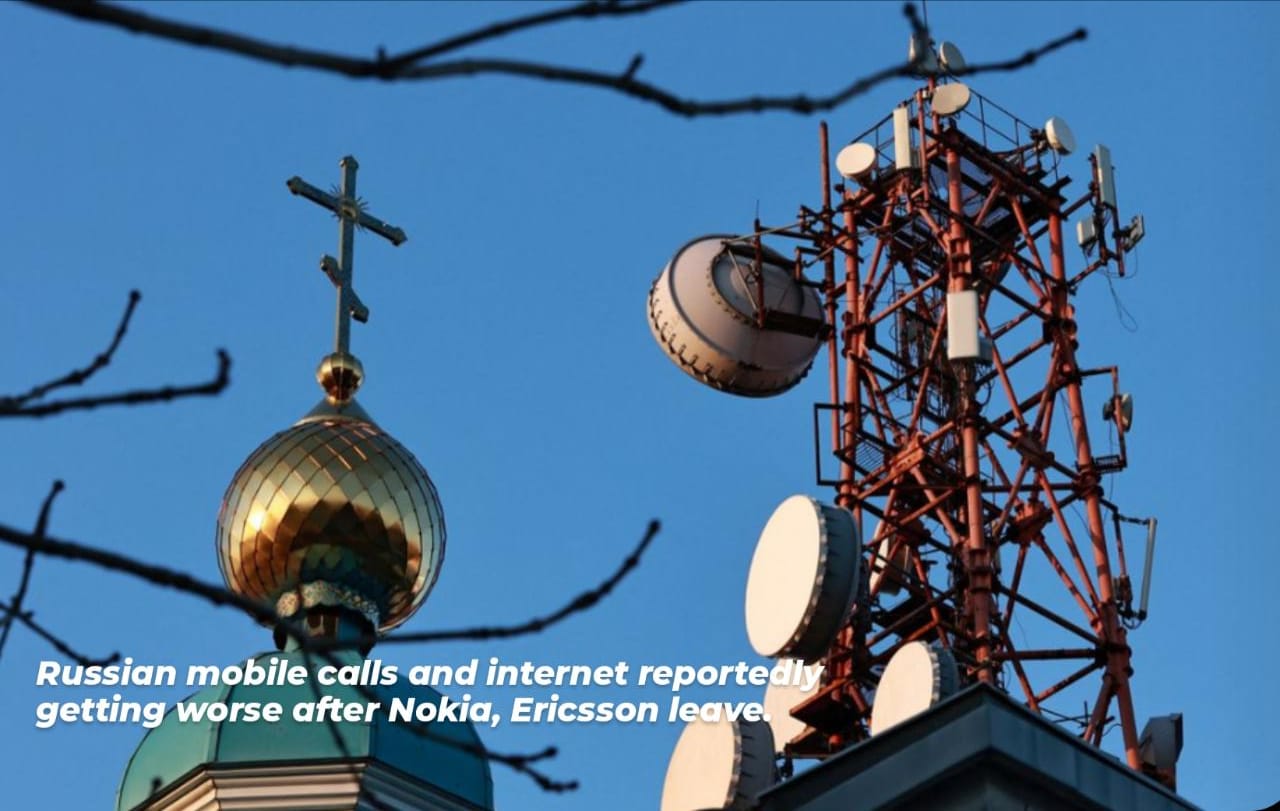
The departure of telecom equipment manufacturers Nokia and Ericsson from Russia at the end of the year may gradually cripple the nation’s mobile networks over time, worsening communication for regular Russians.
Russian mobile phone users will probably experience slower downloads and uploads, more dropped calls, calls that won’t connect, and longer outages as operators struggle over depleting spare parts inventories and lose the ability to upgrade or patch software, according to five senior telecom executives and other industry sources.
Everything from telecom antennas to the hardware that connects optical fibre carrying digital signals is produced by Ericsson and Nokia, which together control a significant portion of the telecom equipment market and close to 50% in terms of base stations in Russia.
They also offer essential software that enables the network’s various components to communicate with one another.
‘All exemptions (from sanctions) expire at the end of the year, which is when we are working,’ Carl Mellander, the finance chief of Ericsson, told Reuters. Authorities in Sweden granted Ericsson exemptions from the sanctions.

Post Your Comments